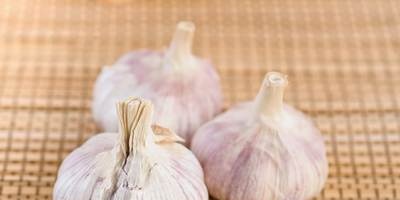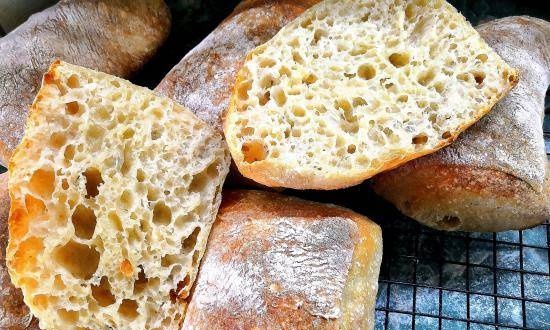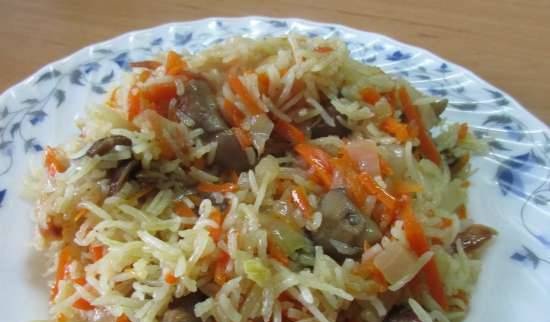|
 Research proves the direct connection of the intestines with the entire body. The condition of the gut affects immunity, weight loss, the development of diseases, and even determines the way of thinking. It's safe to say that our gut, which contains over 100 trillion bacteria, otherwise known as the gut microbiome or gut microflora, is the key to human health. Research proves the direct connection of the intestines with the entire body. The condition of the gut affects immunity, weight loss, the development of diseases, and even determines the way of thinking. It's safe to say that our gut, which contains over 100 trillion bacteria, otherwise known as the gut microbiome or gut microflora, is the key to human health.
In fact, over 90% of the scientific literature over the past five years has been devoted to gut microflora. Nowadays, we are increasingly aware that food has effects far beyond our taste buds.
“We have come to understand that everything that happens in the gut, and especially within the microflora, affects almost all metabolic processes in the human body,” explains Dr. David Perlmutter, a neurologist in the United States who studies the connection between the brain and the gut. "This opens up tremendous opportunities for lifestyle changes to help people regain their health and become more resistant to disease."
While new discoveries are made on a daily basis, some highlights remain intact, such as the gut's strong bond with the immune system. In fact, 70-80% of the immune tissue is found in the digestive system. “You definitely need good gut microflora in order to have a fully functioning immune response and be less susceptible to pathogenic infections,” explains Dr. Nicola Angel, gut microflora specialist at the Australian Center for Ecogenomics.
Gut microbes play an important role in regulating inflammatory processes in the body that are associated with diseases such as Alzheimer's disease, coronary artery disease, diabetes and cancer. An imbalance in your gut or a lack of beneficial bacteria is directly related to excess weight.
There is a close connection between the intestinal microflora and the brain. “We know that the gut sends signals directly to the brain, which in turn sends signals back to the intestines. It has an impact on mental health, ”says Angel.
Gastrointestinal specialist Dr. Helena Davis explains: “Our gut produces a large number of neurotransmitters, which include serotonin. 90% of serotonin is produced by the intestines, so the state of the intestinal microflora affects our mood. "
Gut imbalances can also be a hidden cause of fatigue, poor academic performance, poor behavior in children, asthma and skin conditions such as eczema and rosacea. And these are just some of the examples.
 With incredible technological breakthroughs, more and more people are in control of their chair. “We offer services that help determine the response of bacteria, viruses, fungi in the intestine to antibiotics,” continues Angel. Davis argues that a comprehensive stool analysis can be used to see if patients have bacterial, parasitic infections, or yeast overgrowth. With incredible technological breakthroughs, more and more people are in control of their chair. “We offer services that help determine the response of bacteria, viruses, fungi in the intestine to antibiotics,” continues Angel. Davis argues that a comprehensive stool analysis can be used to see if patients have bacterial, parasitic infections, or yeast overgrowth.
Here's some expert advice on gut health.
Increase your prebiotic intake
“Prebiotics are food ingredients that beneficial gut bacteria use as fuel. Prebiotics affect the growth and activity of beneficial bacteria, ”explains Perlmutter. The main sources of prebiotics are garlic, onions, leek, bananas, asparagus, chicory, Jerusalem artichoke and dandelion.
Add more fiber and fermented foods to your diet
Foods high in fiber, which are found in plant foods, legumes, whole grains, nuts, and seeds, are essential for the growth of gut bacteria. Fermented foods are also recommended for the development of beneficial bacteria. These include yoghurts with live bacteria, sauerkraut, miso, tempeh, tamari, kimchi and kombucha. However, these foods are not always suitable for people with digestive problems. In such cases, it is necessary to pay attention to the treatment of the intestines.
Pay attention to probiotic supplements
Experts say probiotic supplements have beneficial effects on gut health. However, it is recommended that you choose them wisely.
“If you consume probiotics that are poorly digested in the stomach, then it does not do you any good,” explains Nicola, who advises using probiotics that have a scientific basis.
Avoid overuse of antibiotics
We all believe that we only take antibiotics when we really need them. There is a consensus among experts that antibiotics do great harm to beneficial bacteria. “Antibiotics actually kill bacteria and cause irreparable damage to the entire body. According to Angel, antibiotics should only be taken when absolutely necessary.
Avoid inflammation-causing foods
When it comes to foods that trigger inflammation, processed and sugary foods come first.
"Sugar can promote inflammation, feed bad bacteria and imbalance gut microflora," warns nutritionist Lee Holmes.
Angel continues: “Many autoimmune diseases were not widespread until food was processed. If you look at the microflora of ancient people, it is noticeably different from ours. The diseases that we have today were previously unknown. "
Eat anti-inflammatory foods
In case of violations of the barrier-protective function of the intestine, Holmes recommends eating a lot of healthy fats. To reduce irritation in the mouth and throat, he advises the use of slippery elm, for inflammatory bowel diseases - turmeric and aloe vera, which have strong anti-inflammatory effects. Davis also stresses the importance of staying hydrated. “Your intestines are the main organ for detoxification, so think of them like a river,” she explains. You do not want to have stagnant water, but prefer that it was always in a fluid state. "
Manage stress
“Everyone knows that stressful situations negatively affect the state of the gastrointestinal tract. Psychological factors affect the intestines, causing symptoms of various diseases. For this reason, stress must be minimized, ”says Angel. Meditation, exercise, and yoga can help you relax. Holmes' program offers specific yoga poses for relieving bloating and constipation.
Do not use disinfectants
Since maintaining the intestinal microflora is very important, it seems to us that everything needs to be disinfected, sterilized and various antibacterial agents should be used. “It's okay for your kids to eat unwashed foods or kiss their beloved dog. It's not really that bad, ”says Angel.
Lee Holmes anti-inflammatory punch
Heat 250 ml of milk in a saucepan. Add cashews, teaspoon ground turmeric, teaspoon ground cardamom, ground cinnamon, freshly grated ginger, anise, a dash of vanilla powder and black pepper. Mix everything thoroughly. To remove residue, remove the pan from heat and pour the liquid through a sieve. Add 6 drops of liquid stevia to taste. Drink hot.
Salmon ear for gut health
1 tbsp. l.refined coconut oil
4 slices of salmon fillet (skinless and boneless)
part of the onion
2 cloves of garlic
1 stalk of celery
h. l. curry powder
1 l. chicken broth
2 turnips, peeled (cut into 1/2-inch cubes)
1 tsp dried parsley
250 ml coconut milk
Sea salt and black pepper (to taste)
Fresh leafy parsley (for garnish)
1. Melt half the coconut oil in a large skillet over medium heat. Sear the salmon fillets for three minutes on each side. Set aside until the fillets have cooled, then cut into even pieces.
2. Melt remaining butter in a saucepan over medium heat. Add the onion, garlic, celery and curry powder and cook, stirring occasionally, for 3-4 minutes or until the onions are translucent. Add chicken stock, turnips, and parsley. Cook, covered, for 20 minutes or until the turnips are tender.
3. Add coconut milk and stir. Then remove from heat and let cool slightly. Place the milk and salmon chunks in a food processor or blender and blend until smooth. Season with salt and black pepper to taste. Use fresh parsley for garnish and serve. The recipe is for 4 persons.
Slippery Elm Porridge
1-2 tbsp. l. Slippery Elm Bark Powder (available at any health food store)
h. l. powdered stevia
h. l. vanilla
h. l. cinnamon
1 cup almond milk
1. Place the slippery elm in a blender. Add stevia, vanilla, cinnamon, almond milk and blend until smooth.
2. Pour the mixture into a small saucepan. Simmer over low heat, stirring constantly, until the mixture thickens. When the mixture is ready (you should get the consistency of a soft porridge), remove from heat and place in a bowl. Consume immediately after preparation.
Options: You can substitute hot water or coconut milk for almond milk. Add half a teaspoon of cocoa powder. Sprinkle with chia seeds or shredded coconut on top.
N.V. Naumchik
|
 Research proves the direct connection of the intestines with the entire body. The condition of the gut affects immunity, weight loss, the development of diseases, and even determines the way of thinking. It's safe to say that our gut, which contains over 100 trillion bacteria, otherwise known as the gut microbiome or gut microflora, is the key to human health.
Research proves the direct connection of the intestines with the entire body. The condition of the gut affects immunity, weight loss, the development of diseases, and even determines the way of thinking. It's safe to say that our gut, which contains over 100 trillion bacteria, otherwise known as the gut microbiome or gut microflora, is the key to human health.






